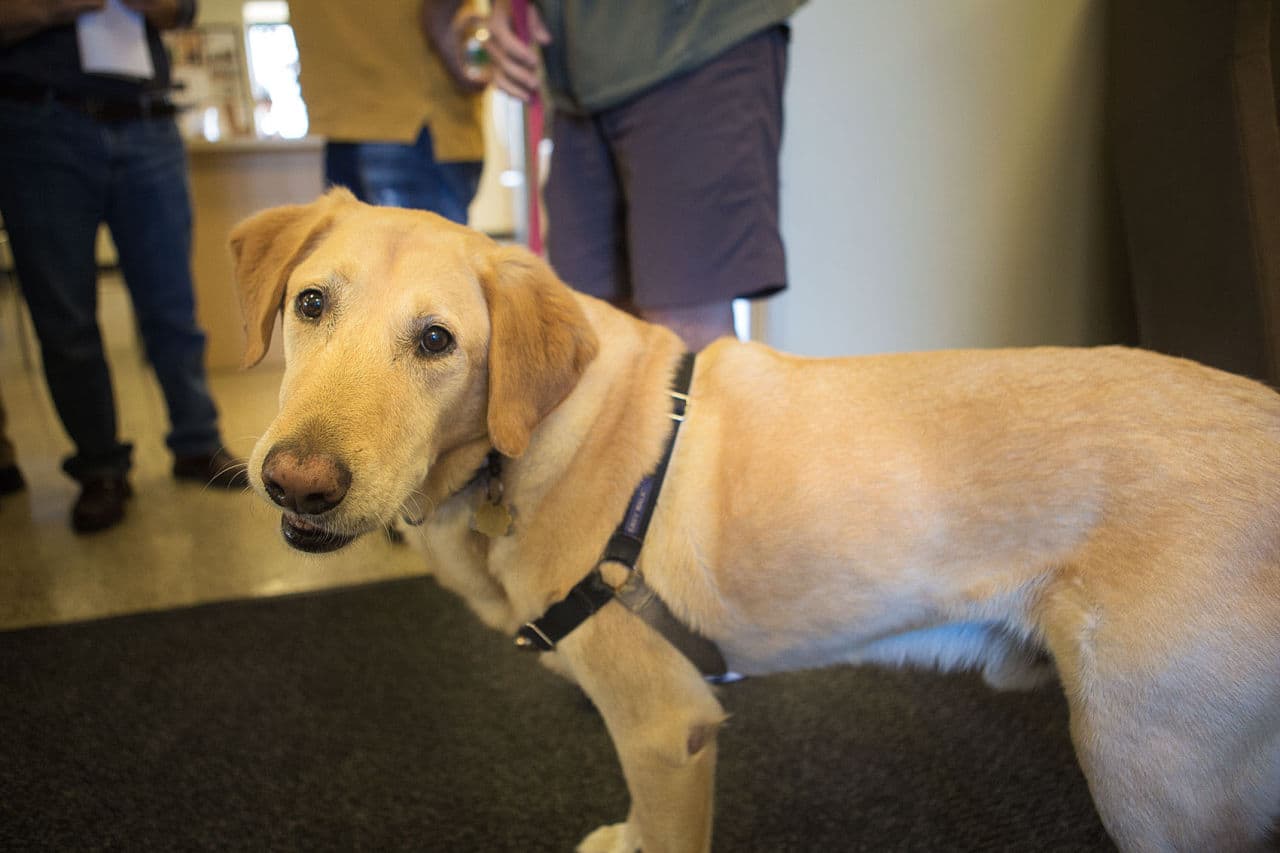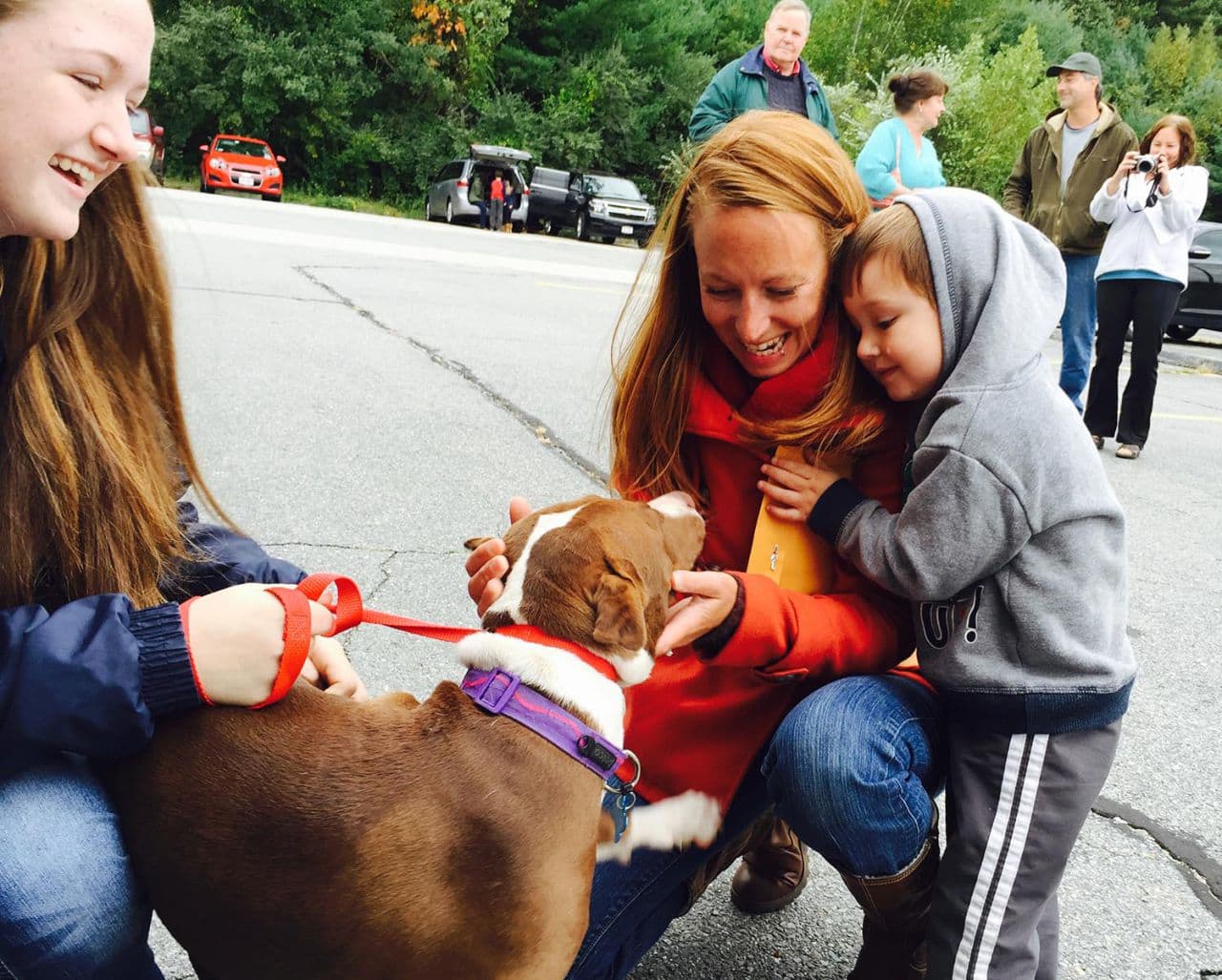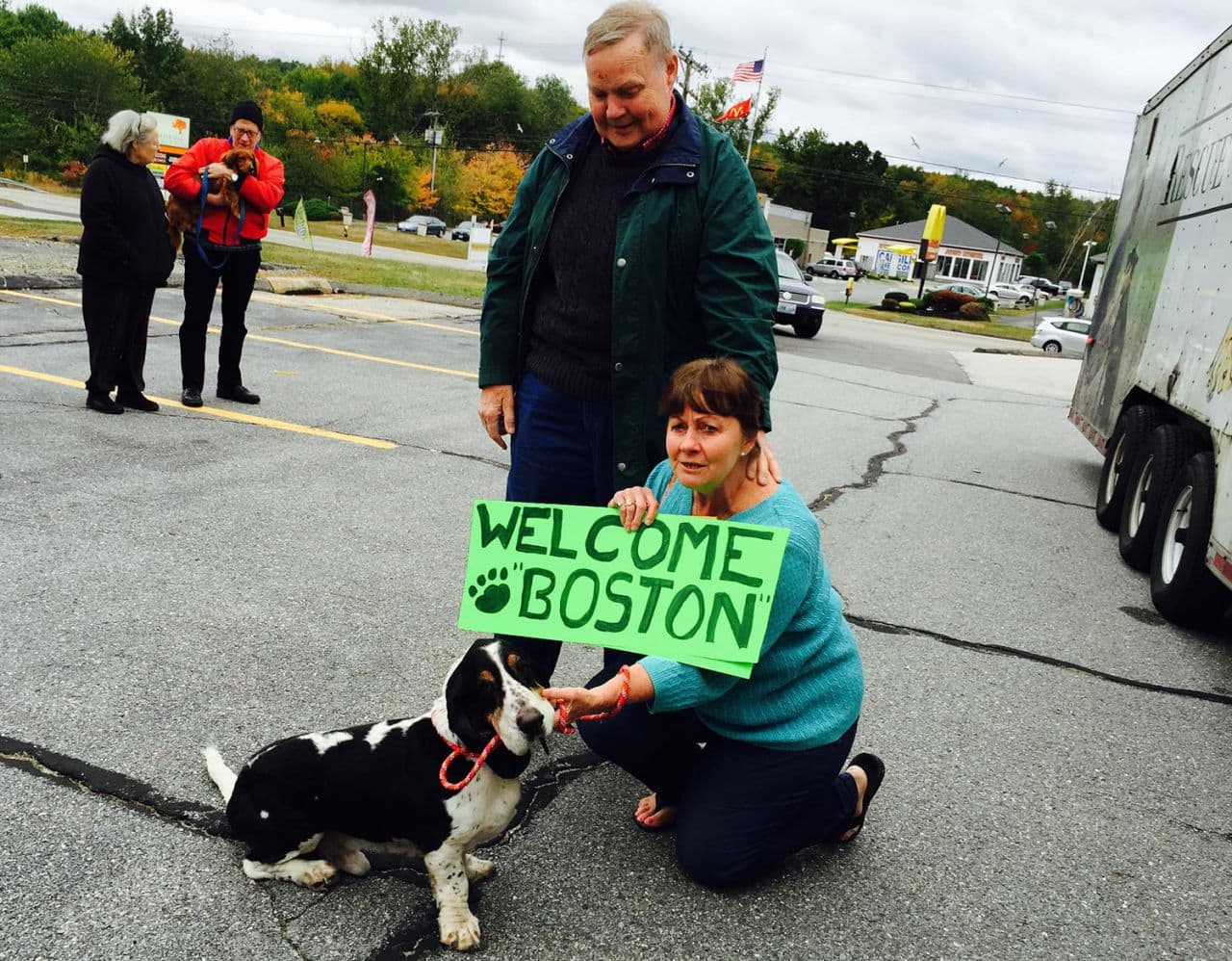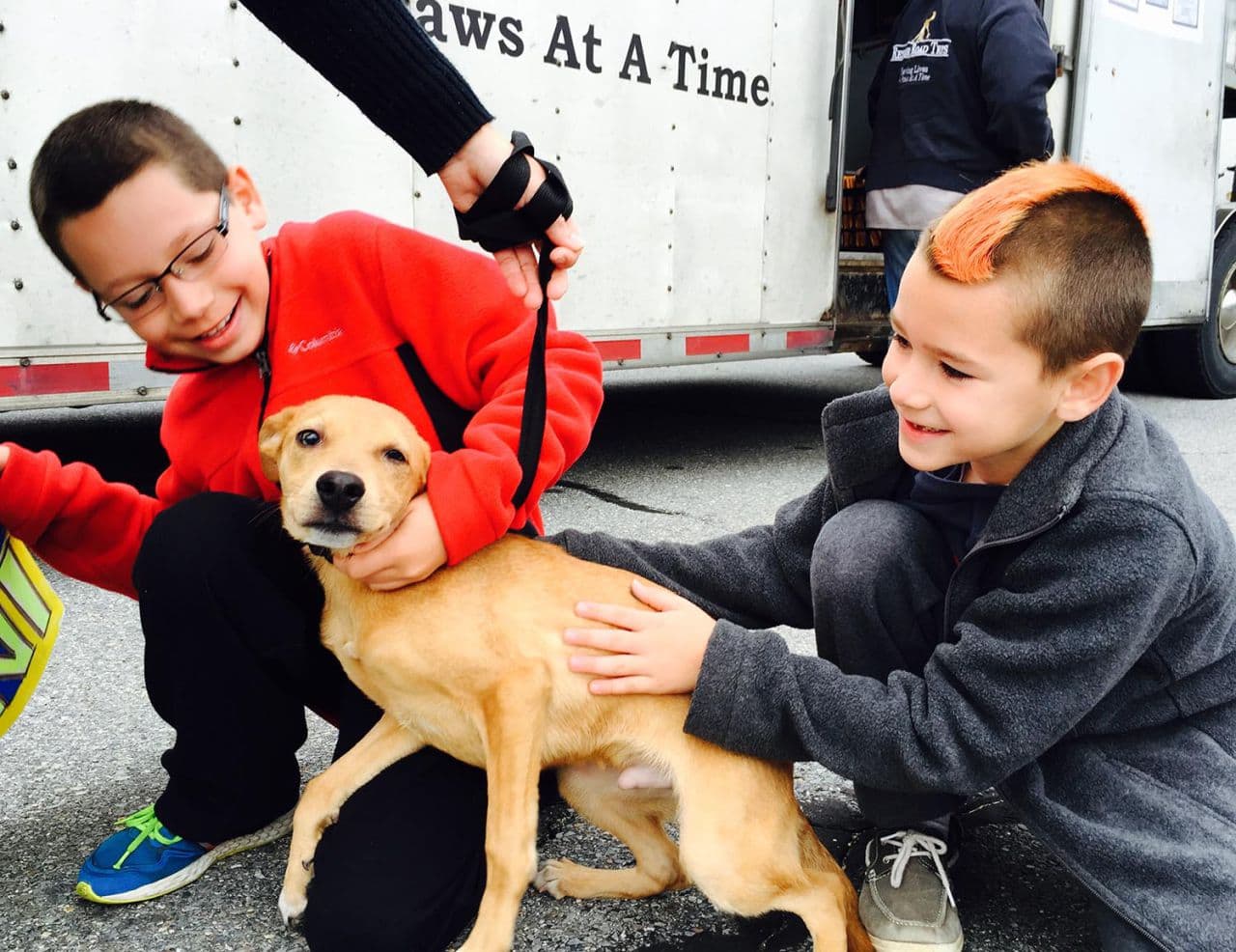Advertisement
One Man's 4,200-Mile Journey To Rescue Dogs In The South And Bring Them Up North
Resume
Every other Saturday, a huge semi truck with a 42-foot trailer pulls up in a parking lot in Putnam, Connecticut. Amid the barking of dogs in the background, a burly man named Greg Mahle hops out.
For the past 10 years, Mahle has made it his mission to find homes for rescue dogs. He brings them up from the South to what he calls “forever families” here in the North. He estimates he has saved some 50,000 dogs.
Dover, Massachusetts, resident Peter Zheutlin is the happy recipient of one of those dogs, Albie. He fell in love with Albie, and wanted to know how the dog made it from a high-kill shelter in Louisiana to his home here.
The result is a new book by Zheutlin called “Rescue Road.”
Mahle and Zheutlin spoke with WBUR about their respective efforts.

Interview Highlights
On the journey:
Zheutlin: Greg leaves his home in Zanesville, Ohio, and the first night tries to get around Bowling Green, Kentucky, or so, or if he can, even push on beyond Nashville — arriving the next day down South, where he begins pickups across Texas, Louisiana, Mississippi, and makes the journey up through Virginia, to Pennsylvania. It takes six days from start to finish.
Mahle: 4,200 miles, from the end of my driveway to the end of my driveway.
Peter: Every other week.
Why there are so many dogs down South that end up being strays:
Zheutlin: There’s a huge overpopulation problem, and it’s complicated, it’s cultural, social, economic, political. For one thing, there isn’t, in a lot of parts of the South -- and I don’t want to generalize too much -- but there isn’t as strong a spay and neuter culture there, and a lot of dogs live outdoors. So naturally, they do what comes naturally.
And people don’t live with their dogs the same way. ... [To a man he interviewed in rural central Louisiana, it was a] very foreign concept that the dog would be in the kitchen while you’re cooking, or sleeping in your bed. … This is not uniform or universal. But the predominant view -- and this was told to me by many dyed-in-the-wool Southerners -- is that dogs, first and foremost, are property, not family members.
On Mahle having the happiest — and the saddest — job:
Mahle: You get to see the worst of what can happen to a dog when you’re making your pickups in the South. You get to see the absolute best of what can happen to a dog when you get to the North. People are capable of doing horrible and unspeakable things. People are also capable of showing love to an extent that will just melt you.
I get to see both of those things.
A few of Lisa's photos of "Gotcha Day" in Putnam, Connecticut:



This segment aired on October 19, 2015.
